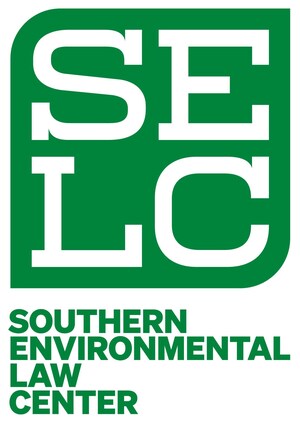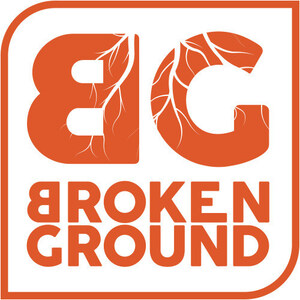CHARLOTTESVILLE, Va., Nov. 17, 2021 /PRNewswire/ -- Today the Southern Environmental Law Center announced its annual Solar "Makers" and "Brakers" — a list of policies that are significantly impacting rooftop solar growth across the South in 2021.
The 2021 Solar Makers include common utility practices and policies that make it easier for Southern customers to adopt rooftop solar. This year's Solar Brakers highlight policies that undermine, and in some cases, completely put the brakes on rooftop solar as a cost-effective, clean energy choice in the South.
"We've seen good policies successfully bring solar within reach for Southerners who want to cut their utility bill with clean energy," said Senior Attorney Lauren Bowen, who leads SELC's Solar Initiative. "But our region has so much more untapped solar potential, and regulatory and utility policies will have an enormous impact on whether we reach it."
Southern states have a lot to gain from solar power if utilities and local governments put policies in place that let them access it. The solar industry — growing at a rate 17 times faster the overall U.S. economy — represents a significant economic engine in a region with a poverty rate far above other parts of the country. People in the South have some of the highest residential utility bills in the nation, and going solar is one of the few ways customers can meaningfully lower their electricity costs.
"Unfortunately, some utilities have punitive policies that are preventing all the Southerners who would benefit from solar energy from accessing it," said Senior Attorney Jill Kysor. "People living in the South can use our digital tool Rates of Solar, which summarizes often hard-to-find policies for approximately 400 utilities in the South, to see if rooftop solar makes sense for them."
When SELC launched our Rates of Solar website in 2018, there were approximately 25,000 homes and businesses in our six-state region with rooftop solar. Three years later, that total has almost tripled to over 70,000.
Earlier this fall, the U.S. Department of Energy released a blueprint showing how the country could move toward producing almost half of its electricity from the sun by 2050. No path to widespread solar adoption can bypass the South, where many of the states with the greatest number of sunlight hours in the nation are located.
But getting there will require the adoption of good policies and the elimination of bad ones. Both the 2021 Solar Makers and Brakers are policies that determine issues of cost, and they identify Georgia Power, Appalachian Power, Alabama Power, and municipal utilities in North Carolina as ones to watch.
The 2021 Solar Makers and Brakers are:
2021 Solar Makers
Net-Metering: Fair Credit for Solar Energy
When people make decisions about whether to install solar, it often comes down to economics. "Net-metering" policies give people credit on their utility bills for the energy that their solar panels generate. Net-metering makes rooftop solar much more affordable, because it lets people use all of the solar energy that they produce before purchasing electricity from their utility. That means people can buy less electricity each month, and save money on their electric bills. Net-metering is a crucial way to make installing solar affordable, but not every utility has a net-metering policy. We are seeing those utilities that do offer net-metering to their customers "make" solar across the South.
One to Watch:
Georgia Power credited its rooftop solar customers for the energy they produced at a very low rate until 2020, when regulators required the utility to introduce a monthly net-metering program that credited customers at a much fairer rate. But there was a catch: the program only had 5,000 spots — and Georgia Power has approximately 2.5 million customers.
The new program was so popular that it filled up in less than two years. Now, customers who are not part of it receive only about a quarter of the value they would get under the monthly net-metering program. Next year, Georgia Power and regulators have the opportunity to expand the net-metering program. That would mean more rooftop solar customers could see the financial benefits of going solar, and it means that Georgia could catch up to neighbors like South Carolina, which has half as many residents as Georgia, but five times the rooftop solar customers. If Georgia Power does not expand its net-metering program, rooftop solar growth in Georgia will dramatically slow down — and possibly even grind to a halt.
Power Purchase Agreements and Leasing: Access to Financing
The upfront cost of going solar can be expensive. For rooftop solar to be accessible, people need the ability to finance their solar system. Two ways to do that are leasing solar panels instead of buying them, or using a financial arrangement called a power purchase agreement, which puts the burden on solar installers or investors — not customers — to cover the upfront cost of installing solar panels. In the case of both leasing and power purchase agreements, customers pay no or very low upfront costs. That means they can begin saving money on their utility bills as soon as the system begins operating. Financing arrangements like leasing and power purchase agreements are critical to making rooftop solar affordable. By opening up access to rooftop solar, both these financial arrangements are "making" solar in the South.
One to Watch:
Despite the fact that over 60 percent of students in southwest Virginia qualify for free and reduced lunch, the utility that serves the schools they attend — schools that have no ability to pay for solar panels up front — did not allow them to utilize power purchase agreements until this year. After the main utility serving the region, Appalachian Power, introduced newly negotiated contracts permitting financing arrangements like power purchase agreements, two school districts in the region announced they would be investing in solar. Now, thanks to the new financing options available to them, they will be able to defray the upfront cost of solar and lock in long-term energy savings.
It's a particularly significant development in the former coalfields of southwest Virginia, a region that once powered the nation, but which is now uniquely vulnerable to rising energy costs. Before they had access to financing, these southwest Virginia school districts simply could not tap into all the benefits of clean energy through solar. Thanks to financing options like power purchase agreements, now they can.
2021 Solar Brakers
Steep Fees: Discrimination Against Solar Customers
The decision to install solar often comes down to dollars and cents. Southern households pay some of the highest monthly electric bills in the country, and rooftop solar can help reduce that burden. But across the South, some utilities are all but erasing solar customers' savings on their monthly bills by charging them steep fees. These fees are separate from the upfront costs of installing solar panels: they are additional, punitive fees targeting and discouraging customers from adopting rooftop solar. These added discriminatory costs ruin the economics of going solar. If left unchecked, these steep fees will continue "braking" rooftop solar across the South.
One to Watch:
Alabama Power has been charging rooftop solar customers punitive, discriminatory fees for installing solar since 2013. Their monthly fees are some of the highest in the nation: every year, the average rooftop solar customer with five kilowatts of solar pays Alabama Power approximately $300 in additional fees. That adds up to more than $9,000 over a typical system's lifespan.
The discriminatory fees on rooftop solar customers aren't simply unfair to the customers who pay them: they stifle solar adoption statewide. Alabama ranks 49th nationally for residential solar — nearly dead last — with only about 500 rooftop solar customers in the entire state. Due to the steep fees Alabama Power is charging its solar customers, Alabama is getting left behind.
Forced Sale Policies: Blocking Customers from Using Electricity They Generate
Some people are motivated to install solar panels so that they can use homegrown, clean energy instead of energy derived from fossil fuels, and of course, most people are motivated by cutting their utility bill, too. But not all utilities allow rooftop solar customers to use the energy they produce. Despite the fact that customers generated energy with solar panels installed on their own properties, some utilities force customers to sell all of the electricity they produce back to the utility — often at rock-bottom prices. Then those same utilities force customers to purchase all the electricity they need back from the utility at a higher retail rate than the rate at which the utility bought the solar. These forced sale policies are "braking" solar by making it completely uneconomic to install.
One to Watch:
More than twenty municipal electric utilities in North Carolina have forced sale policies. In these cities, very few homes and businesses have installed rooftop solar — with these punitive policies in place, it just doesn't make sense to go solar. Many of the utilities with these problematic policies are members of a trade association for municipal utilities in the state called ElectriCities of North Carolina. ElectriCities has an opportunity to recommend that its members replace their current forced sale policies with better policies that would let customers use their homegrown solar and sell excess energy back to the utilities at a reasonable rate. If the municipal utilities instead continue their unfair forced sale policies, we expect to see residents in the cities where they operate miss out on the economic and environmental benefits of solar.
The Southern Environmental Law Center is one of the nation's most powerful defenders of the environment, rooted in the South. With a long track record, SELC takes on the toughest environmental challenges in court, in government, and in our communities to protect our region's air, water, climate, wildlife, lands, and people. Nonprofit and nonpartisan, the organization has a staff of 170, including 90 attorneys, and is headquartered in Charlottesville, Va., with offices in Asheville, Atlanta, Birmingham, Chapel Hill, Charleston, Nashville, Richmond, and Washington, D.C.
southernenvironment.org
SOURCE Southern Environmental Law Center

Related Links
WANT YOUR COMPANY'S NEWS FEATURED ON PRNEWSWIRE.COM?
Newsrooms &
Influencers
Digital Media
Outlets
Journalists
Opted In






Share this article